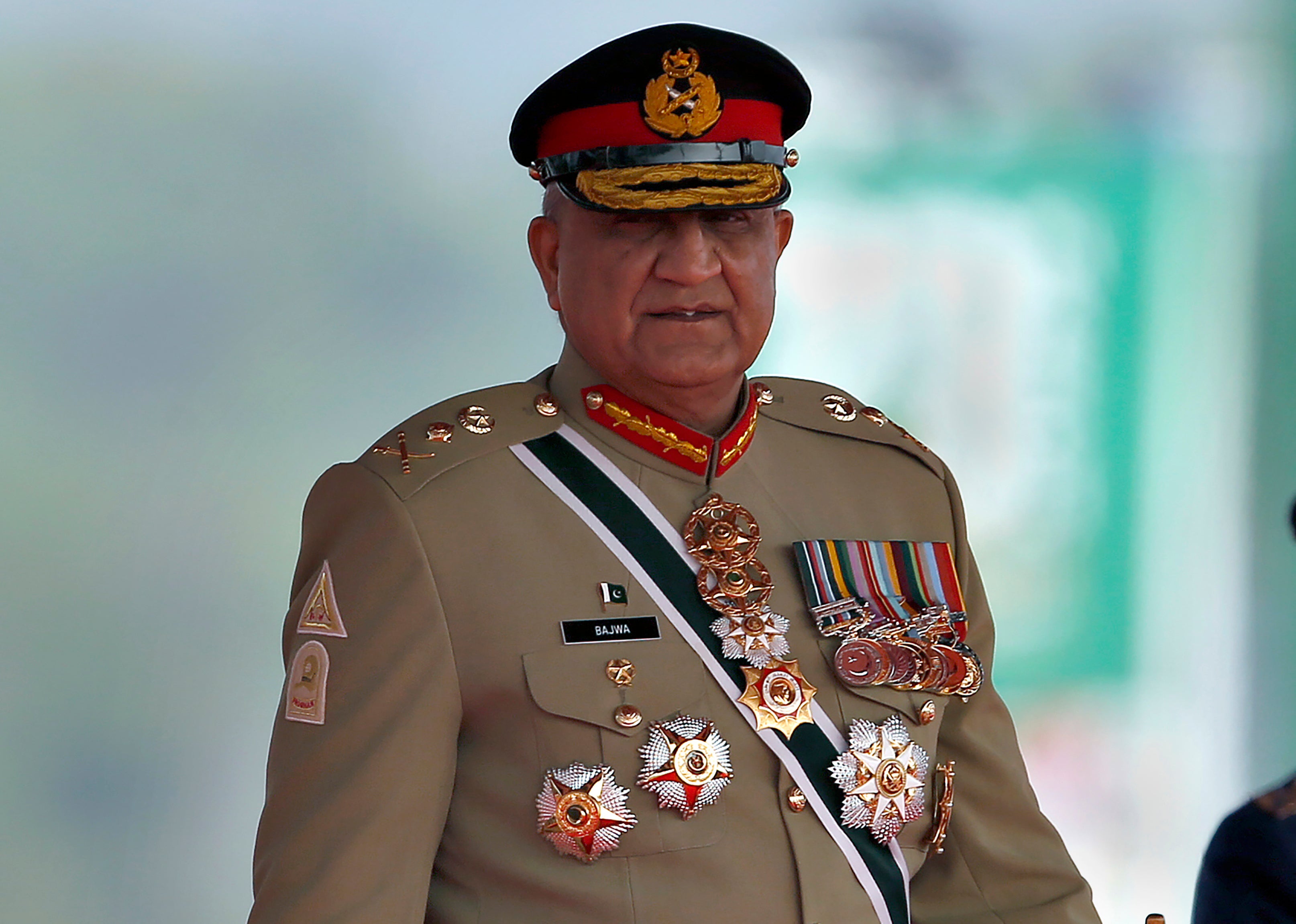Pakistan military chief seeks US help on release of IMF loan
Pakistani officials say the country's powerful army chief has contacted Washington, seeking U.S. help in securing an early release of a crucial $1.7 billion installment from the International Monetary Fund to Pakistan

Your support helps us to tell the story
From reproductive rights to climate change to Big Tech, The Independent is on the ground when the story is developing. Whether it's investigating the financials of Elon Musk's pro-Trump PAC or producing our latest documentary, 'The A Word', which shines a light on the American women fighting for reproductive rights, we know how important it is to parse out the facts from the messaging.
At such a critical moment in US history, we need reporters on the ground. Your donation allows us to keep sending journalists to speak to both sides of the story.
The Independent is trusted by Americans across the entire political spectrum. And unlike many other quality news outlets, we choose not to lock Americans out of our reporting and analysis with paywalls. We believe quality journalism should be available to everyone, paid for by those who can afford it.
Your support makes all the difference.Pakistan’s powerful army chief has contacted Washington, seeking U.S. help in securing an early release of a crucial $1.7 billion installment from the International Monetary Fund to his country, struggling with a deepening economic crisis, Pakistani officials said Saturday.
According to several government officials, Gen. Qamar Javed Bajwa discussed the issue with U.S. Deputy Secretary of State Wendy Sherman, appealing on Washington to use its influence with the IMF to help Pakistan.
The appeal was a rare reaching out by the army chief. Pakistan's relations with the United States have been troubled in recent years, mainly over the issue of neighboring Afghanistan, now run by the Taliban.
The relations remained especially tense under former Prime Minister Imran Khan, who was ousted in a no-confidence vote in Parliament in April. However, Pakistan’s military, which has directly ruled the country for more than half of its 75-year history, has closely worked with the U.S. and was an official ally in the war on terror against al-Qaida.
Pakistan's foreign ministry confirmed Friday that Bajwa and Sherman had talked.
“I understand (the) conversation has taken place, but at this stage, I am not in direct knowledge of the content of this discussion,” said ministry spokesman Asim Iftikhar.
The officials who spoke to The Associated Press on Saturday said the discussion focused on the IMF loan. They spoke on condition of anonymity because they were not authorized to talk to the media.
Pakistan and the IMF originally signed the bailout accord in 2019. But the release of a $1.7 billion tranche has been on hold since earlier this year, when the IMF expressed concern about Pakistan’s compliance with the deal's terms under Khan.
Khan's successor, Prime Minister Shahbaz Sharif, and his government reached a preliminary agreement with the IMF earlier this month to revive the bailout package. That agreement was subject to approval from the fund’s board of directors.
Pakistan had hoped for a quick revival of the bailout, but the IMF has so far not released the much-needed installment, which may have prompted Bajwa's call to Washington. It remained unclear what U.S. officials could do to speed up the process of the bailout.
There was no immediate comment from Washington on the phone call.
Bajwa also spoke by phone with the head of U.S Central Command in the Mideast, Gen. Michael Kurilla, on Friday, according to a military statement. It quoted Kurilla as saying he appreciates the role Pakistan plays in the region's stability and expressing hopes for further improvement in cooperation with Pakistan.
Pakistan desperately needs the IMF loan. Earlier in July, the fund said it would raise the value of the bailout from $6 billion to $7 billion, if approved by its executive board, usually considered a formality.
Sharif has repeatedly blamed the former prime minister's government, alleging that Khan — a former cricket star turned Islamist politician — had deliberately violated IMF’s conditions in order to remain popular among followers at home.
Analysts say the revival of the IMF bailout will help Pakistan and encourage other international financial institutions to engage with the South Asian country.
Sharif’s government has also been in contact with Washington over reviving the IMF bailout. Since his ouster, Khan has repeatedly alleged that his government was toppled under a U.S. plot, a charge Washington denies.
Since Khan's ouster, Pakistan’s currency has plummeted to an all-time low amid uncertainty about IMF assistance. The rupee slid a record low of about 240 against the dollar last weekend. Previously, the dollar sold for 225 rupees.
The steady decline in this Islamic nation’s currency has spread panic among its business community. Rising food prices and inflation has made Sharif's government, now in its four month in office, highly unpopular.